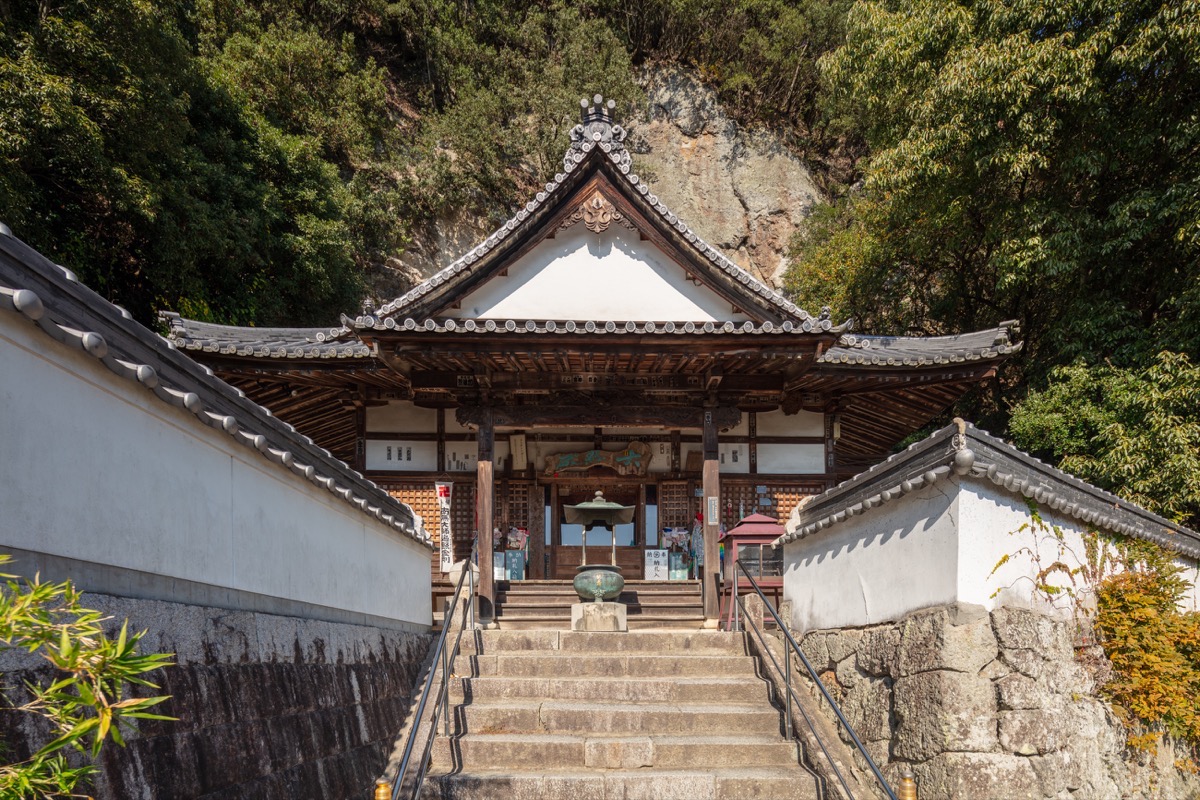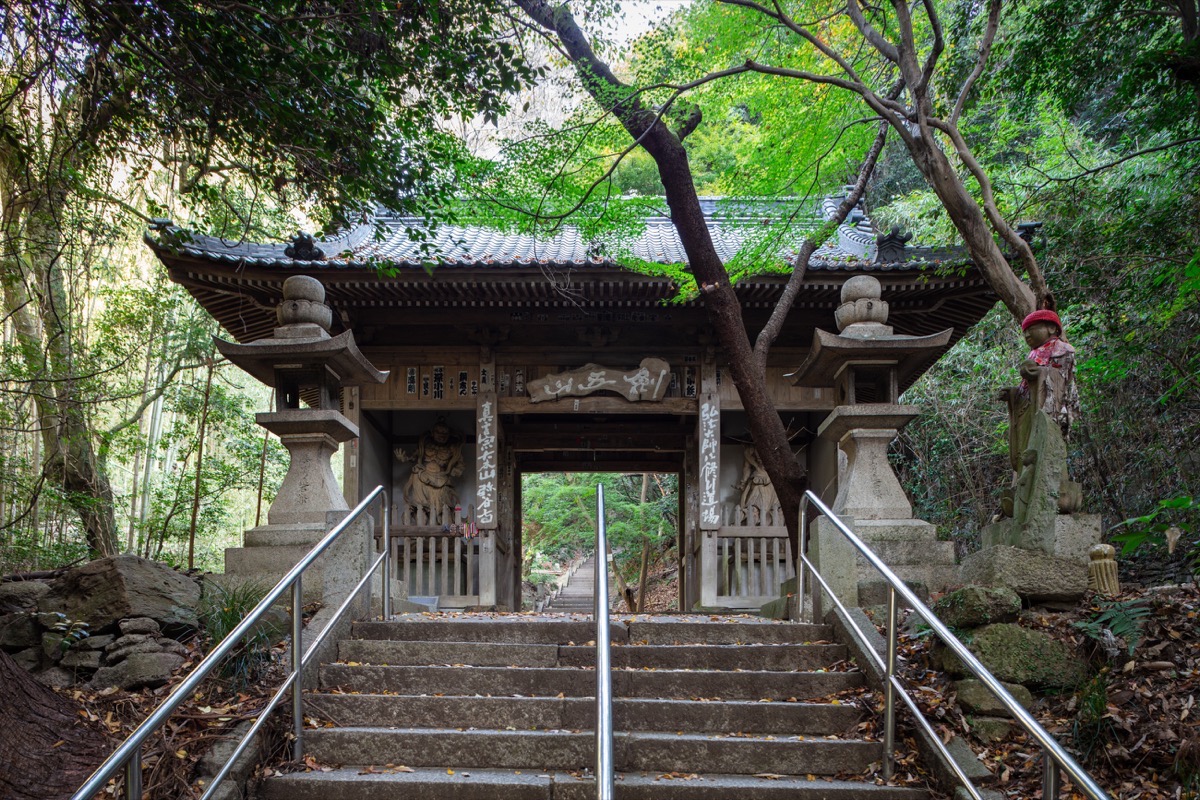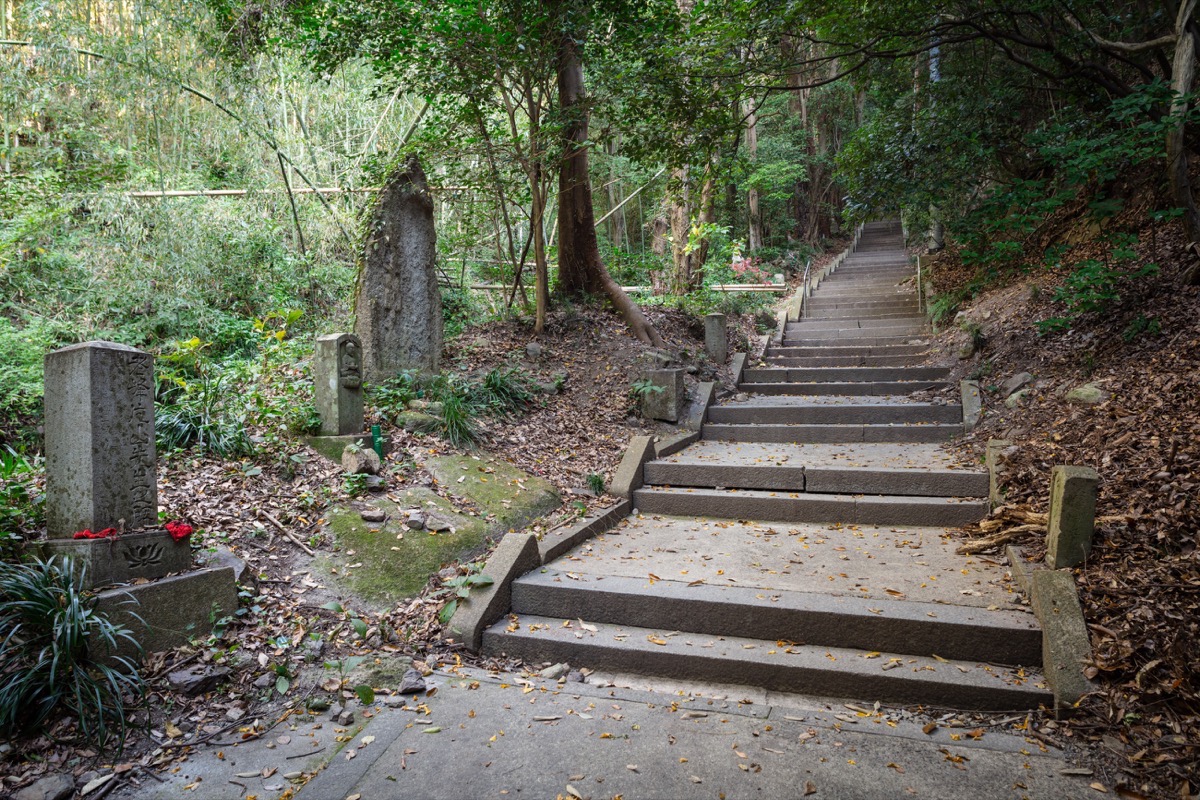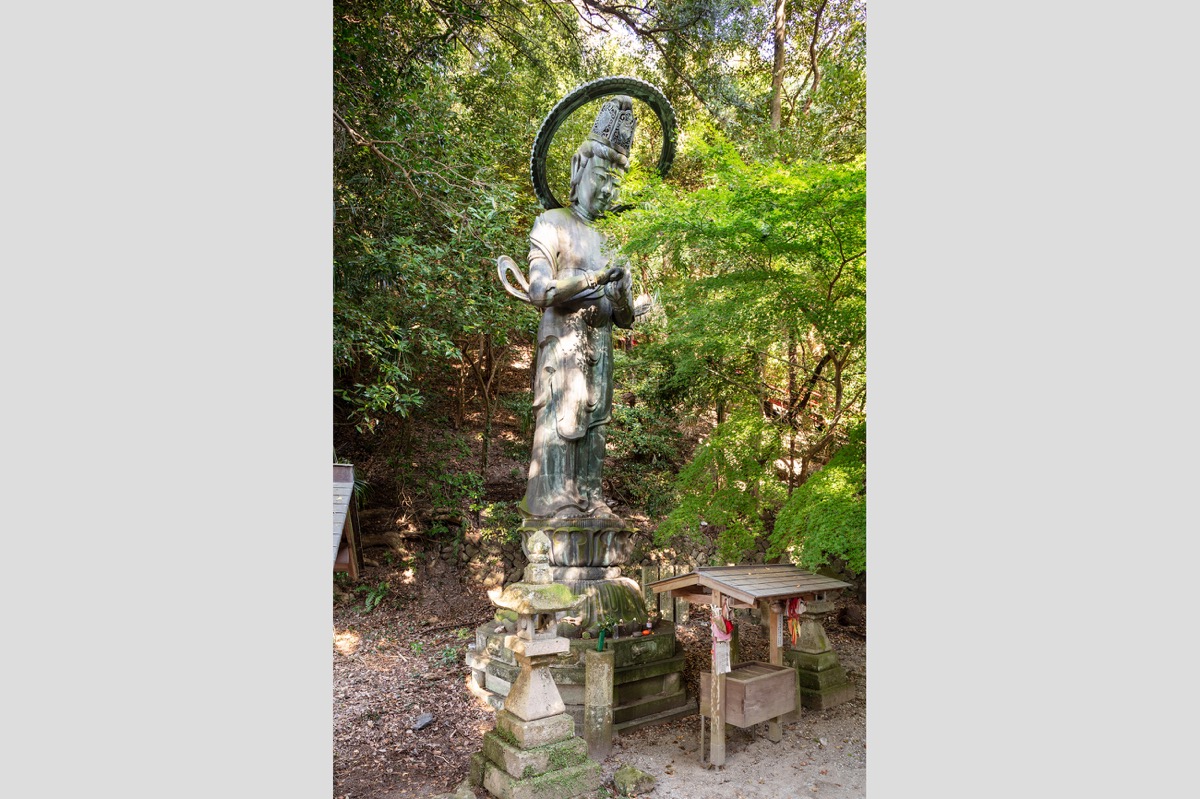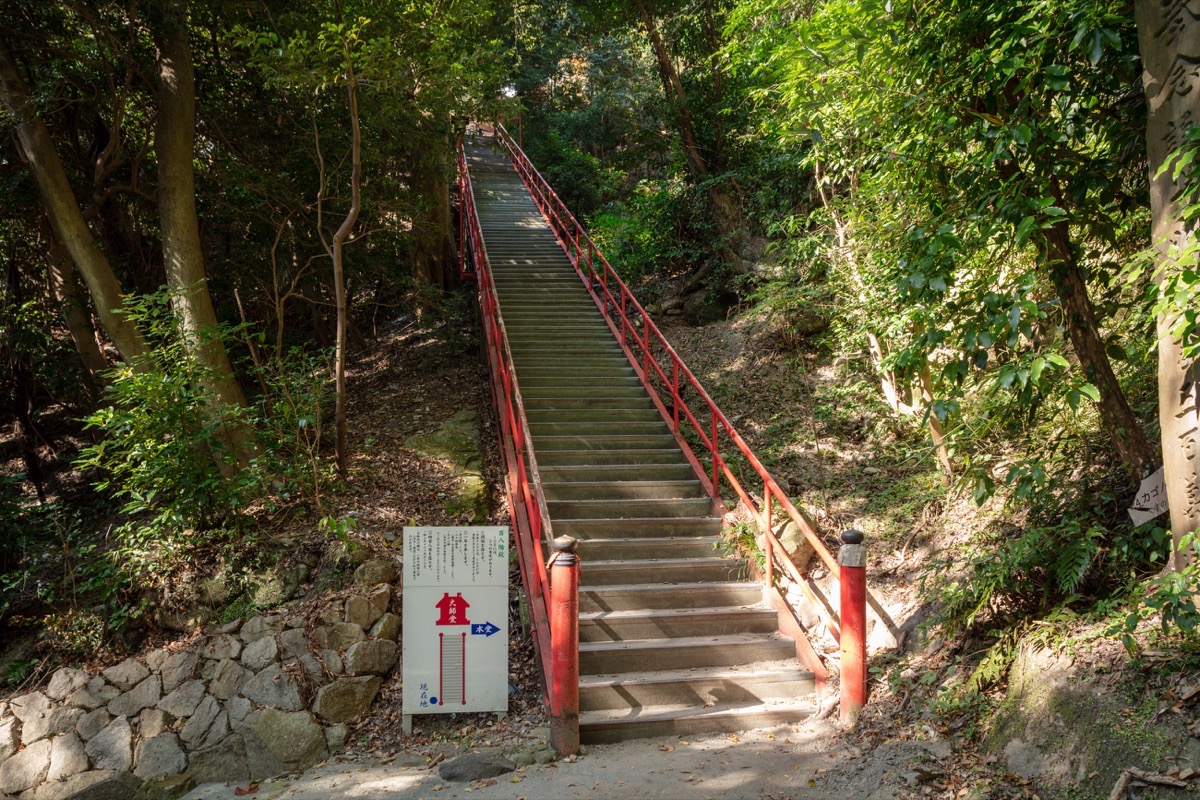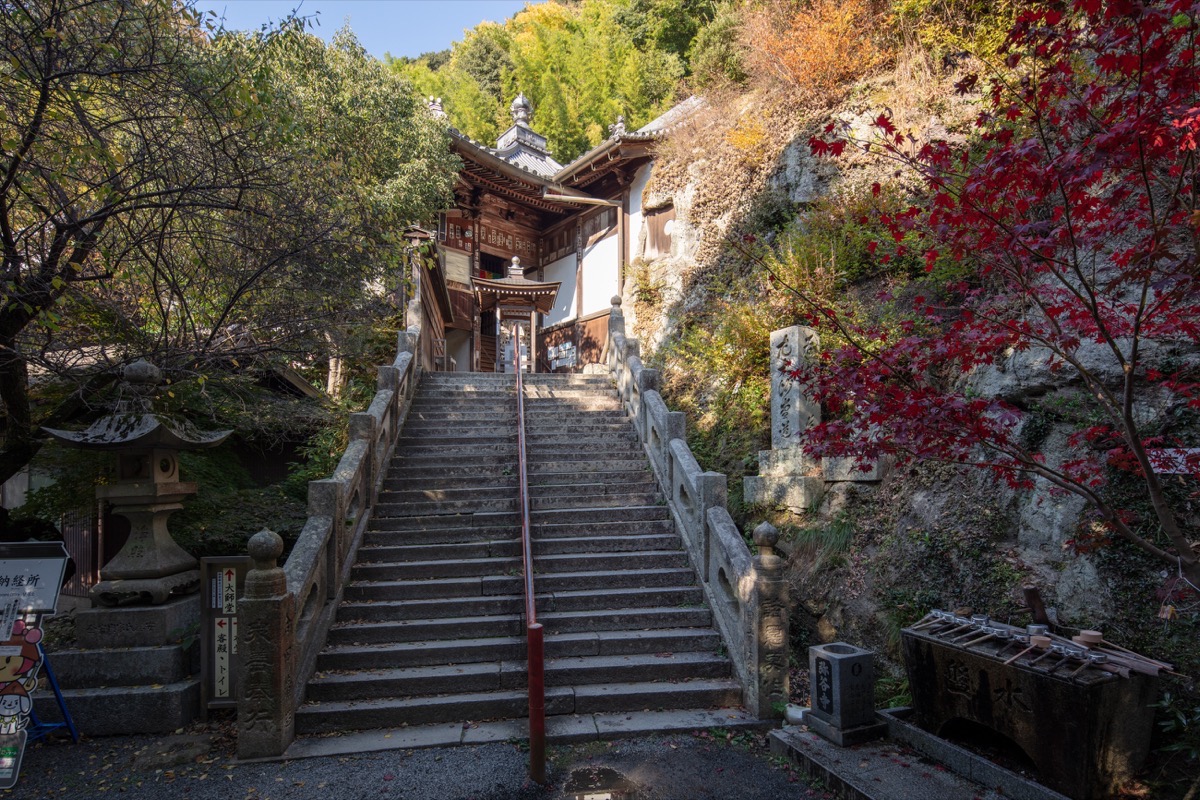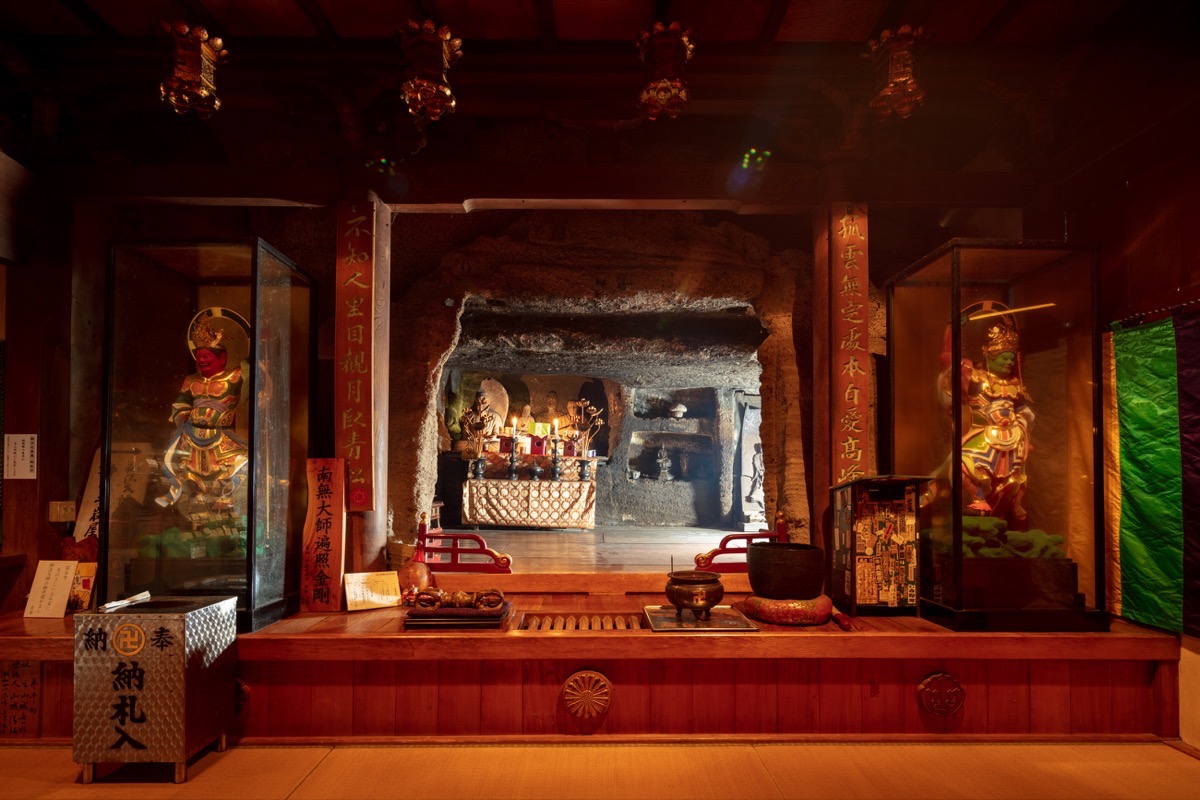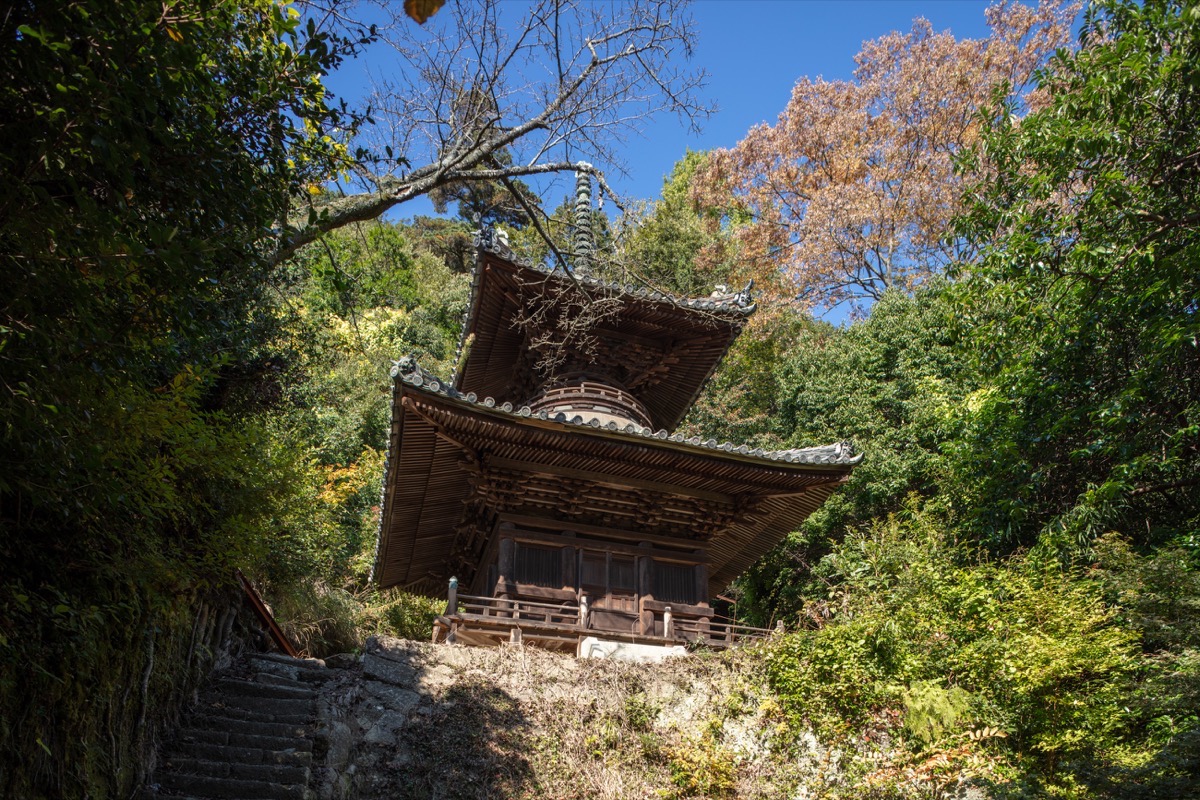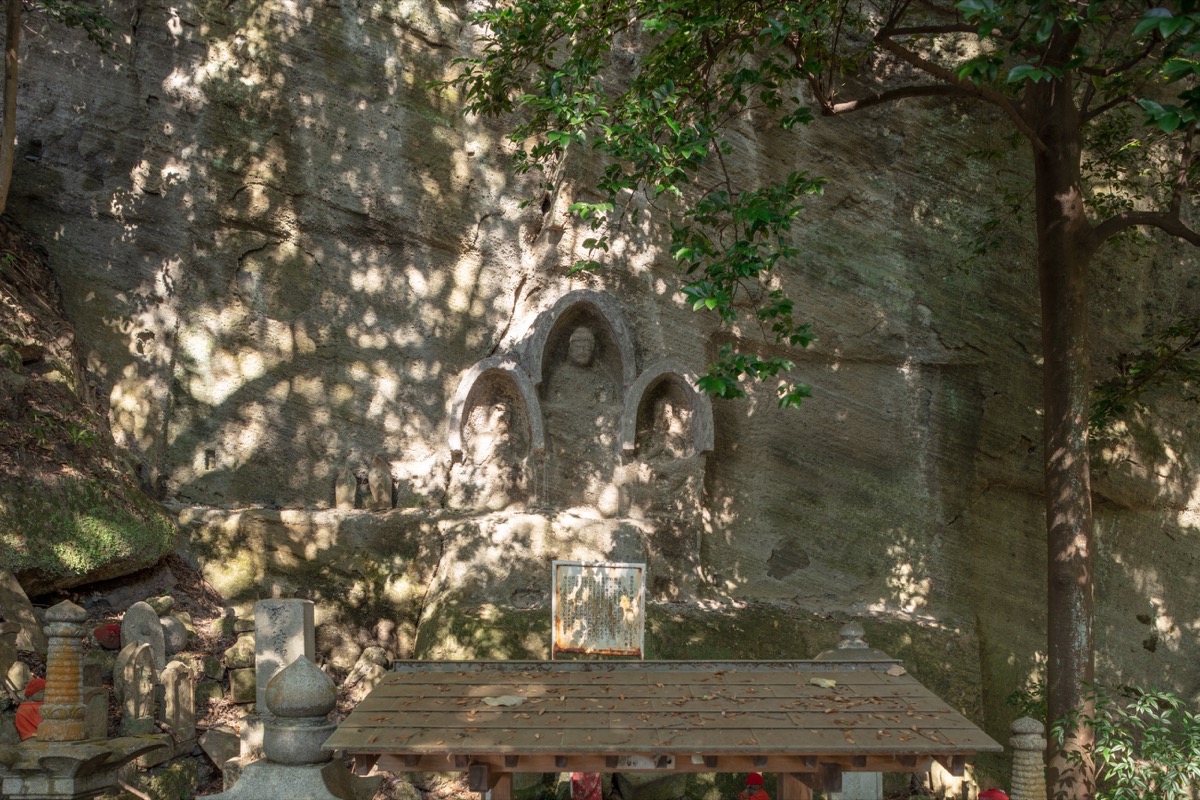Iyadaniji TempleThe 71st Temple Iyadaniji Temple
| District | Shikoku Henro pilgrimage | Period | ー |
|---|---|---|---|
| Set Content/Set Date | |||
| Owner | Iyadaniji Temple | Location | 70 Omi-otsu, Minocho, Mitoyo, Kagawa |
Iyadaniji Temple, the 71st sacred spot on the Shikoku Henro pilgrimage, is located half-way up Mt. Iyadani, on a rocky slope surrounded by trees.
According to writings documenting its origins and history, Iyadaniji Temple was built 1,300 years ago by the Buddhist priest, Gyoki. It was apparently given the name Yakunidera (Eight Lands Temple), because from the peak of Mt. Iyadani, one could see not only Shikoku, but all eight provinces surrounding the Seto Inland Sea.
It is said that Kobo Daishi (Kukai) visited Iyadaniji Temple in 807 (Daido 2), and while he was studying esoteric Buddhist practices there, 5 swords fell from the sky and he heard a revelation from the heavens. As a result, Kobo Daishi constructed a new temple hall and established the temple grounds.
There is a cave located behind the Daishi Hall where the young Kobo Daishi studied the teachings of Buddhism. Even now, windows that let moonlight into the cave still remain.
The buildings on the temple grounds, including the main hall, are built directly on rock formed from volcanic ash. Statues of Buddhist figures such as the Amida Buddha, the characters of the Namu Amida Butsu prayer, and five-story stone pagodas were also carved out of this rock. The degree to which this rock was utilized indicates that Iyadaniji Temple was a place of faith and religious training.

